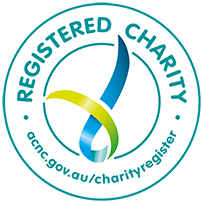Royal Society of NSW News & Events
1161st General Monthly Meeting
"The Australian tsunami warning system - protecting Australia
from waves of destruction"
Dr Dale Dominey-Howes, Natural Hazards Research Laboratory, Risk Management Group, School of Safety Science, UNSW
Wednesday 4 June 2008, 6.30 for 7 pm
Conference Room 1, Darlington Centre, City Road
ABSTRACT
The 2004 Indian Ocean tsunami (2004 IOT) disaster, although catastrophic, only had minor effects on the coasts of Australia. Prior to this event, few had considered the risk that this hazard type might present to Australia. Since the occurrence of the 2004 IOT, the Australian Federal government has committed almost $70 million to the development and deployment of an Australian Tsunami Warning System (ATWS) to help safeguard Australia from future potentially damaging tsunamis. In addition, State and Territory Emergency Services are spending additional funds on tsunami research and community risk management. This talk outlined current state-of-the-art tsunami science being undertaken in Australia. The speaker examined the geological and historical record of tsunamis that have affected Australia, considering those regions capable of generating tsunamis that would be damaging to our coasts and exploring the current important research questions that still need to be answered.
The talk also described the structure and function of the Australian Tsunami Warning System and considered how it performed following the 2 April 2007 Solomon Island tsunami that triggered the first warning from the ATWS. The talk concluded by asking, "has the deployment of the ATWS made Australian coastal communities safe from future tsunamis?"
BIOGRAPHICAL NOTES
Dr Dale Dominey-Howes FGS FRGS is an expert in natural hazards, risk and vulnerability and disaster management. He graduated with a BSc (Honours) from London University and was awarded his PhD in natural hazards from Coventry University (UK). He held an European Union Postgraduate Scholarship to undertake his PhD, which was on the geological and historical records and effects of tsunami in the Aegean Sea region of Greece. Dale's PhD was undertaken in collaboration with the National Observatory of Athens, Greece. Since graduating, he has worked on tsunami, volcanic hazards, tropical cyclones, earthquakes and coastal floods in the Mediterranean, Atlantic, Indian and Pacific Ocean areas. He is particularly interested in the interaction between risk and vulnerability and loss reduction and disaster management.
From 2000 to 2005, Dale was the elected Secretary and Treasurer of the International Society for the Prevention and Mitigation of Natural Hazards. In 1999, he was nominated and then selected as one of the Most Outstanding Young Research Scientists in the 1999 British Parliament, Showcase of the Best of British Science at the House of Commons London. Dale is presently a senior lecturer in Natural Hazards in the School of Risk and Safety Sciences at the University of New South Wales. Since 2005 he has also been providing scientific support to the state and federal governments in their development and deployment of the Australian Tsunami Warning System.
Sydney meetings
- Sydney meetings 2024
- Sydney meetings 2023
- Sydney meetings 2022
- Sydney meetings 2021
- Sydney meetings 2020
- Sydney meetings 2019
- Sydney meetings 2018
- Sydney meetings 2017
- Sydney meetings 2016
- Sydney meetings 2015
- Sydney meetings 2014
- Sydney meetings 2013
- Sydney meetings 2012
- Sydney meetings 2011
- Sydney meetings 2010
- Sydney meetings 2009
- Sydney meetings 2008
- Sydney meetings 2007
- Sydney meetings 2006
- Sydney meetings 2005
Hunter meetings
- Hunter meetings 2023
- Hunter meetings 2022
- Hunter meetings 2021
- Hunter meetings 2020
- Hunter meetings 2019
Southern Highlands meetings
- Southern Highlands meetings 2023
- Southern Highlands meetings 2022
- Southern Highlands meetings 2021
- Southern Highlands meetings 2020
Details of events scheduled for the remainder of the current year by the Southern Highlands branch can be found on its website, while details of events of previous years can be found here.
Western NSW meetings
Distinguished Fellows
Governance
List of Presidents
Useful links
Support us
 We are a registered charity and very much welcome your support through donations or a bequest. Donations in support of our Scholarship and Library programs are tax-deductible in Australia.
We are a registered charity and very much welcome your support through donations or a bequest. Donations in support of our Scholarship and Library programs are tax-deductible in Australia.





